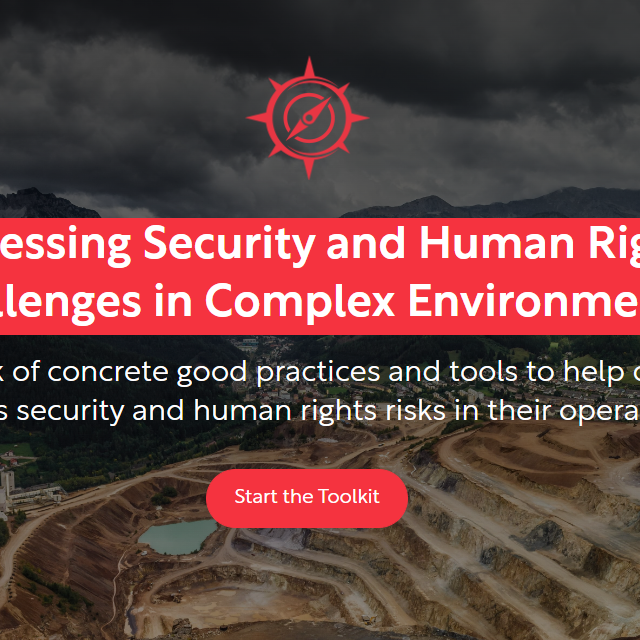Security & human rights toolkit "Addressing security and human rights challenges in complex environments"
Security is an issue for all companies, whether it relates to their field operations, supply chains or contractors. Responsible security management is especially challenging in complex and conflict-affected environments where governance is weak and companies face the task of managing overlapping and complex networks of stakeholders. Ineffective security management has significant impacts on the rights and development of communities and substantial consequences on the company’s social license to operate. Implementing security practices that comply with human rights is not merely good practice, but an absolute necessity.
The Toolkit on Addressing Security and Human Rights Challenges in Complex Environments is a practical handbook that companies can adapt and apply to address security and human rights risks in their operations. It brings together relevant resources and good practices, as well as tools and case studies that help translate the good practices to various operational contexts.
The Toolkit is structured around real-life security and human rights challenges identified through consultations with a wide variety of stakeholders. It provides practical guidance on working with host governments, public security forces, private security providers and communities.
